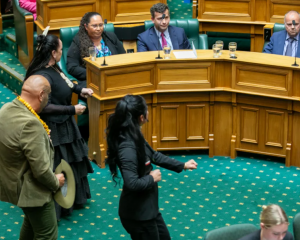
Chat Generative Pre-Trained Transformer was unleashed by OpenAI only last November.
Already, the chatter about the chatbot is encompassing. Already, it has been banned from New York schools and from Queensland and New South Wales public schools but not in Victoria.
University of Otago business school dean Robin Gauld this week said dealing with ChatGPT will pose challenges for the university.
Examples abound of it producing adequate essays and other material in seconds. Famously, it achieved a pass in the notoriously difficult United States medical licensing exam. No wonder some have nicknamed it CheatGPT.
Prof Gauld experimented by asking it to create a 12-week course outline with a week-by-week list of lectures. It completed this task in good order and close to instantaneously. He described ChatGPT as the internet on steroids.
Educational institutions have learned to tackle internet copy-and-paste plagiarism along with outsourcing assignment cheating.
The Covid era and online assessment also increased cheating opportunities.
Students already use Google or other search engines extensively, as well as the likes of Grammarly to check grammar, clarity and expression.
Those of a certain vintage remember the advent of the calculator and how the slide rule quickly became a relic. As scientific calculators became more advanced, universities had to adapt.
What the calculator achieved, however, is freedom from laborious calculation, releasing time to be spent on understanding the matter at hand whether in mathematics or every field requiring the manipulation of numbers – which by the way includes the social sciences and the likes of history and politics.
Where ChatGPT and its ilk might lead is being explored and understood. These types of AI will only become better and better, more creative and capable in text, graphics, video and beyond.
It is now the turn of many a "creative" and "knowledge worker" to be threatened. ChatGPT, for example, will produce sophisticated computer code on quick demand. AI can produce in moments fancy graphics in whatever is the chosen style. Writers and editors have already been displaced. And so, it goes on.
The challenge for education is close and direct, although something called AICheatCheck has been speedily developed. It examines selected words and sentence structure to predict whether a machine or person is the author. Other programs are already out there. Obviously, the research for and construction of essays and all the learning that thereby takes place is circumvented when AI does the work. Absent is the learning needed for advanced thinking, the ordering and processing of ideas, the presentation of arguments and understandings and the correlation of the knowledge of others.
Some educators, though, see opportunities. They also recognise AI is being used in professions and will be a tool in the "real world". It is here to stay.
Some teachers might also be wondering if AI could help speed up what is often laborious marking.
In the meantime, universities could well adapt assessments. There might be fewer remote assignments, back to the future with more writing by hand, and more oral exams.
Universities and everywhere else will also, at the same time, need to look to integrate this fast-evolving technology. It will be more than just a revolution in education.
And another thing
A positive proposal has emerged in a newly-announced election policy from the New South Wales government.
Good drivers will be given a one-off chance to escape a fine for offences including low-range speeding, disobeying no-turn signs or driving in a bus lane.
Drivers would still receive a demerit point and the incentive could only be applied once every three years.
This carrot for motorists comes after the removal of mobile speed camera warning signs led to more fines being issued.
As New Zealand moves to more advanced speed camera coverage – and with that far more speeding fines – a similar plan makes sense here.












